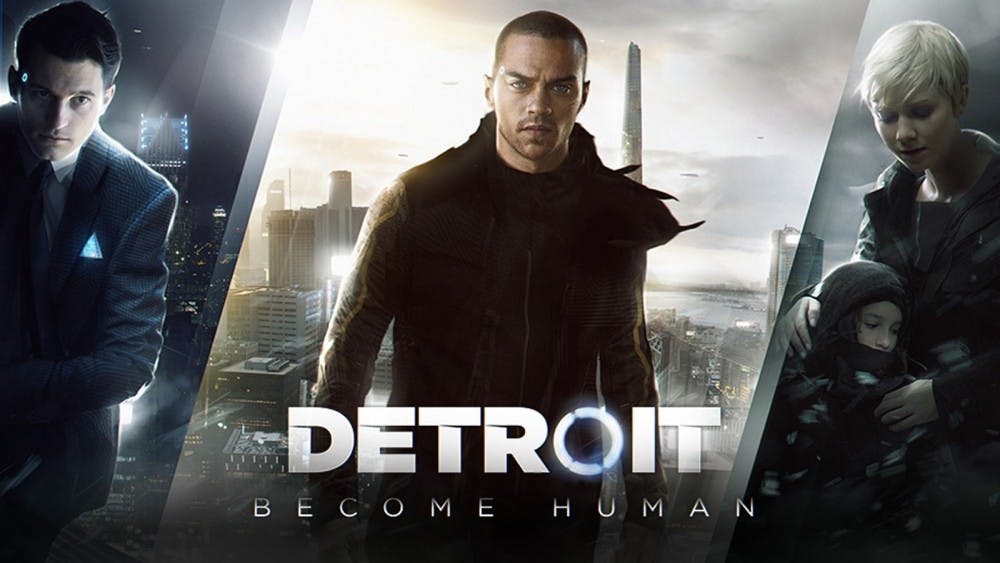Disclaimer: This review was conducted on a launch PS4.
You would certainly want to give credit to Quantic Dream for their branching storylines as the credits started to roll after I finished my playthrough of Detroit: Become Human. Detroit explores an interesting idea of a world where androids have become abused by humans through our misguided use of technology, while looking at artificial intelligence having conscious feelings like love and empathy. The premise itself is fascinating, and the variety of choices is plentiful. These choices can be compact or far-reaching, and can help you develop a relationship or decide which questions you want to answer, but what you choose can have unpredictable outcomes. The result is an experience that will hold your attention and leave you thinking. Sometimes this narrow focus is also its downfall, as you will begin to spot inconsistencies or unexplained information within its melodramatic dialogue—despite the meaningful moments.
A somewhat unpredictable sci-fi story
The story of Detroit: Become Human focuses on the meaningful relationships your three main protagonists will have as you make choices that affect how the story plays out, even if the story itself is fixed to a certain degree. Connor, a prototype android sent by a company called CyberLife, is called in by the police to solve a series of crimes that deal with deviant androids while building up a buddy-cop comedic relationship with the android-hating police lieutenant, Hank Anderson. Kara is a android that starts to form an intimate and caring relationship with a little girl named Alice after you help her escape her abusive, drunkard father. Finally, Markus is an android that starts a revolution along with his fellow androids.
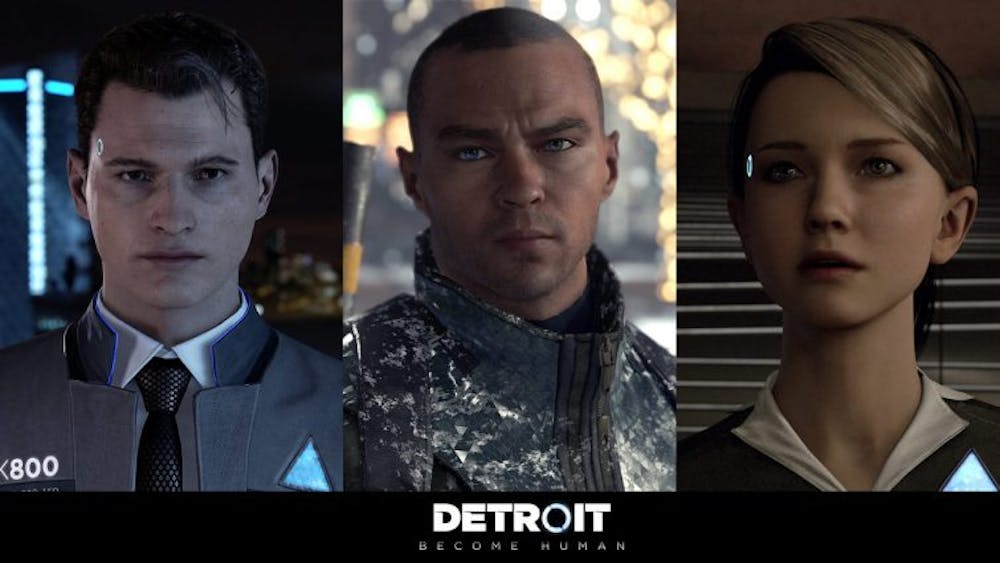
Image from PlayStation.Blog
For the most part, many of the supporting characters will adapt to the choices that you make within the story. How you develop these relationships with the characters plays into what happens in the overall narrative that opens different paths and scenes based on your decisions, and whether they are good or bad. Even finding the simplest objects, like an “Alice in Wonderland” book or a photo, can open new dialogue options in future chapters.
But with that in mind, there is some clunky exposition and corny dialogue that creates some plot holes in the 10 hour story. For example, Markus is somehow able to use magical android powers that suits him when the situation calls for it, and how Hank is usually impressed when Connor is able to solve even the simplest of mysteries. Many of the game’s themes were heavy-handed in certain parts, particularly parts that tried to show motifs of racism and consumerism regarding androids. Some examples are how they are not allowed in stores and restaurants while looking at how people can easily buy one like it’s the newest iPhone on the market. Even if these were overplayed, the story has plenty of heart. They were enough moments of quiet tenderness to keep me emotionally invested and high enough stakes – especially in its final act – to keep my eyes glued to the screen.
Remarkable presentation
One major accomplishment that I will give to Detroit: Become Human is its presentation. With the performance-capture technology at the developer’s disposal, many of the characters are able to perform with expressive realism. The detail you can see in their faces is extraordinary: facial hair, blemishes, freckles, and moles, all rendered in great detail, even more so on the PS4 Pro.
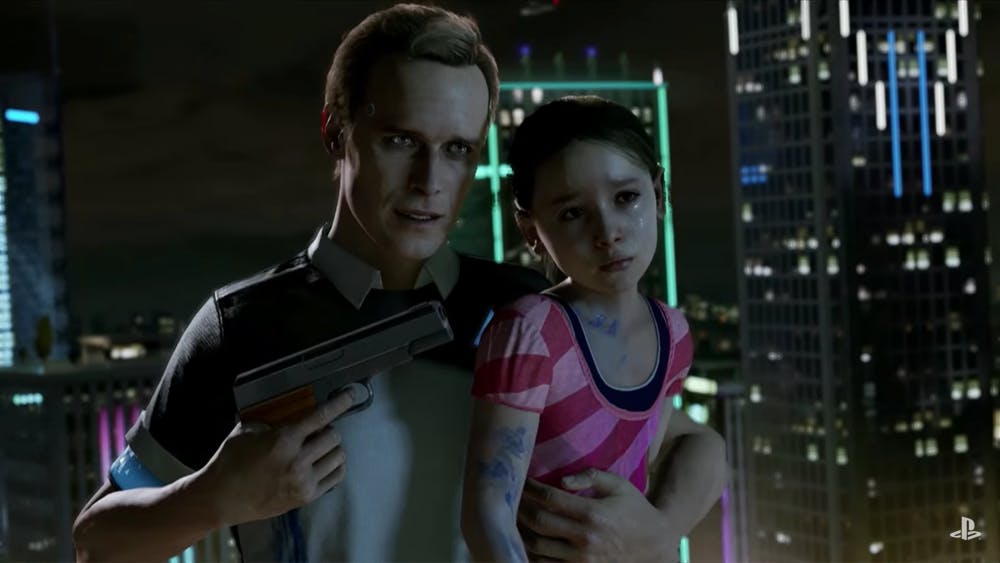
Image from detroit-become-human.wikia.com
The in-game world feels lived-in, like it was built with history behind it. This is not necessarily a dystopian, dark future of Detroit, but rather a world where androids are constantly present in society. A world where androids are sold in stores and work as cheap labor to maintain the city structure, like working as construction workers or park cleaners. Little details that you find in collectible magazines tell stories of technology being potentially dangerous, like with political tensions between the United States and Russia, and how sports leagues are starting to implement androids into sports like football.
While I had experienced some textures on one in-game character not being fully rendered or cutscenes that froze for a couple minutes as it loaded up the next scene, I was still able to enjoy these marvelously detailed environments. One of my favorite sequences involved scanning for specific graffiti tags to find a particular location, which ended up being an eerie, mysterious trek through a dark corner of the city. Another suspenseful scene in an abandoned mansion filled with hidden secrets made me feel chills.
Consequential gameplay that could need some fine-tuning
The way in which you interact within Detroit’s environments in a linear fashion mostly works to a certain extent. Action sequences play out with timed button presses, swoops of the thumbstick on the controller, and occasional motion controls that evoke the action on screen. An android detective mode allows you to scan the environment to reconstruct crime scenes. Fast-forwarding and rewinding to find certain clues is very interesting, along with a new ability to “pre-construct” scenarios before you execute them. I would have liked to have more interactions with the detective mode than what the game allowed me to do—as well as having the option to skip dialogue I had heard previously.
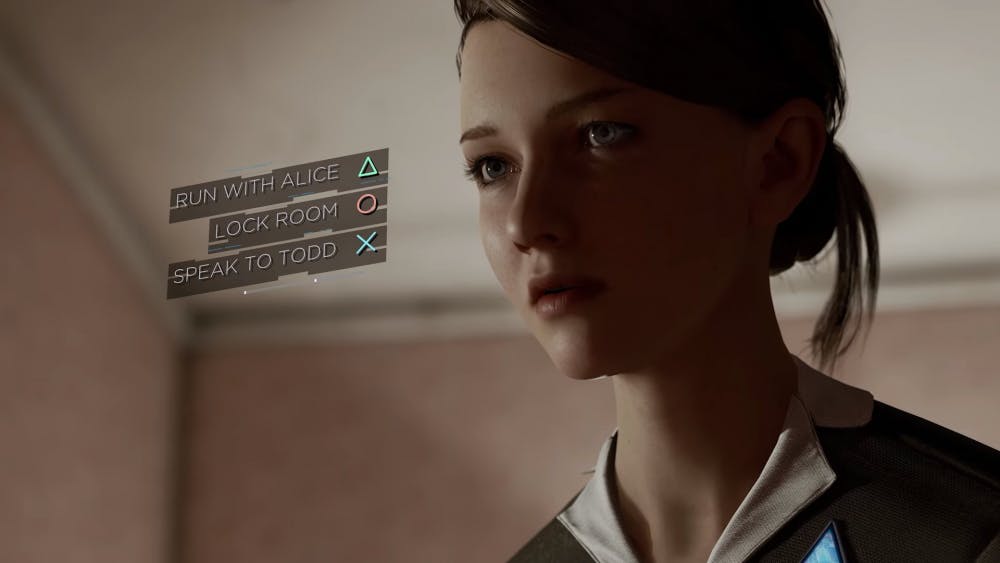
Image from TechRaptor
Of course, the way in which you play Detroit is entirely up to you based on the choices you make. While there is the backbone of fixed narrative, the choices within the story are numerous and broad. Quantic Dream made a smart decision in making the multitude of paths become apparent through flowcharts displayed at the end of each chapter, showing you how it could have been played differently if you had made another choice. This feature entices you to play through that section again.
For me, this was the biggest draw for the game. Not every alternate choice that you make will create a drastically different outcome for the story. Sometimes it might change your relationship with another character and unlock a new story path. Sometimes it might result in death, whether of a supporting character or one of the three central main characters (who can all die at different points in Detroit), or experience an action sequence with some shocking consequences. You can easily go back and do another playthrough or replay certain scenes from the chapter select screen to see more of the characters and world-building the game offers.
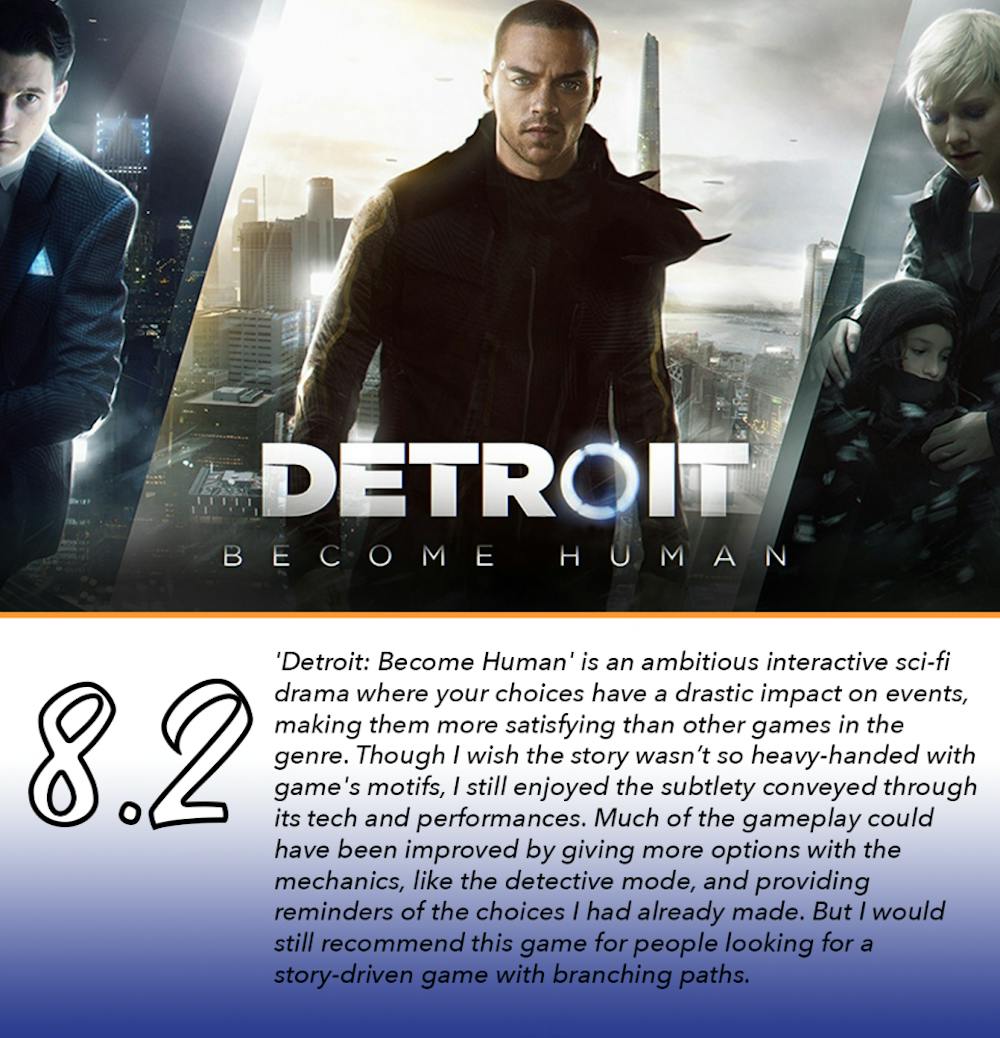
Featured image from AndroidCentral
For more entertainment related content, visit us at Bytebsu!














